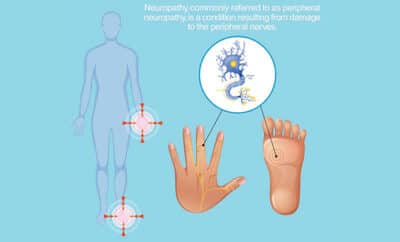A New Year, A New You . . . A Vicious Cycle


By Brian J. Shiple, D.O. & Kelly P. Shiple, PA-C
At this time of year, everyone wants to try to make up for all of the excessive eating, drinking and indulging that so often goes hand in hand with the holiday season. Gyms become overcrowded with new members, the latest fad diets are started, and the scale becomes the enemy. Despite their best efforts, for many the scales won’t budge, hope is lost, and the unhealthy bad habits return indefinitely. Each year it’s the same story, often with the same frustrating results. Wouldn’t it be nice to end that cycle and actually experience an improvement not only in the way you look but also in the way you feel?
So many patients who come to us for help with weight loss are doing everything right – they workout regularly, eat healthy foods, and limit their sugar intake. However, the first step to succeeding with a lifestyle change is to have a proper hormone evaluation. When patients’ hormones are not appropriately balanced achieving any kind of results with exercise and/or an improvement in diet can be almost impossible. The most common hormone that most people blame for difficulty losing weight is thyroid. While an under active thyroid is a common cause of trouble with weight loss, there are several other hormones that need to be considered, as well. For example, testosterone and DHEA are vital in losing fat around the abdomen and gaining muscle in both men and women. Testosterone and estrogen have the ability to improve skin texture, as well. Progesterone can also aid in the reduction of bloating and fluid retention in women. When patients are deficient in any or all of these hormones, trying to achieve an improvement in weight is a challenging uphill battle.
For patients who do not experience any weight loss after their hormones are balanced we often resort to prescribing a regimented program to ensure they are modifying their lifestyle properly to achieve the best results. We offer both a nutritional cleansing program as well as a very low-calorie diet program to address most patients’ needs.
The nutritional cleansing program is a flexible, product based meal replacement system designed to help support the body’s natural detoxification processes long term. This line of products includes those not only for weight loss, but also for healthy aging, energy, and exercise performance that are all backed by scientific evidence. In a University of Illinois at Chicago research study from 2012, this nutritional cleansing program was compared to a traditional, restrictive diet. Subjects on this program lost an average of 9 pounds total, with 2 of those pounds being visceral fat after completing 30 days. These participants were also more compliant and experienced more consistent weight loss weekly in comparison to the traditional diet group.
The very low-calorie diet (VLCD) program involves maintaining a daily intake of 500 calories for an extended period of time while injecting human chorionic gonadotropin (HCG). HCG is a hormone that is prescribed for infertility in men and women and produced in large amounts by pregnant women. Prescribing this hormone to aid in weight loss began in 1967 when Dr. Albert Simeons, a British endocrinologist, developed this program after hypothesizing that since HCG can utilize fat reserves for nutrition for a fetus during times of deprivation in pregnancy, it may also work similarly in non-pregnant women and men and help achieve weight loss. Dr. Simeons found that when his patients consumed minimal calories and injected themselves with low doses of HCG they did not experience side effects of starvation such as hunger, weakness, irritability, or headaches. However, the entire regimen must be followed in order to achieve optimal results. To this day despite many success stories, HCG is still not FDA approved for weight loss.
We do have several patients who do not see weight loss after their hormone levels have been balanced and lifestyle changes implemented. These patients often need a more in-depth evaluation and work up to determine if they have a chronic underlying condition like heavy metal toxicity, mold toxicity, leaky gut syndrome, or Lyme disease. These conditions can make losing weight even more difficult and need long-term treatment by a specialist.
If you’re ready for this to be the last year that your new year’s resolution involves getting healthy or losing weight, call us for a consultation today.
Testimonial:
“I’m usually a very energetic person. However, I noticed during the last few years that I felt fatigued all the time. No matter how stringently I dieted and exercised, I was unable to lose weight. I began working with Kelly in August 2016. Once my hormones were optimized, my energy level improved and I lost 25 pounds. I have had no trouble maintaining my weight loss and I feel better than ever!” – A.W.
Disclaimer: Weight loss is not guaranteed with any of the above treatment programs. Using prescription hormones to aid in weight loss is not FDA approved and should be considered off-label use of these medications.





